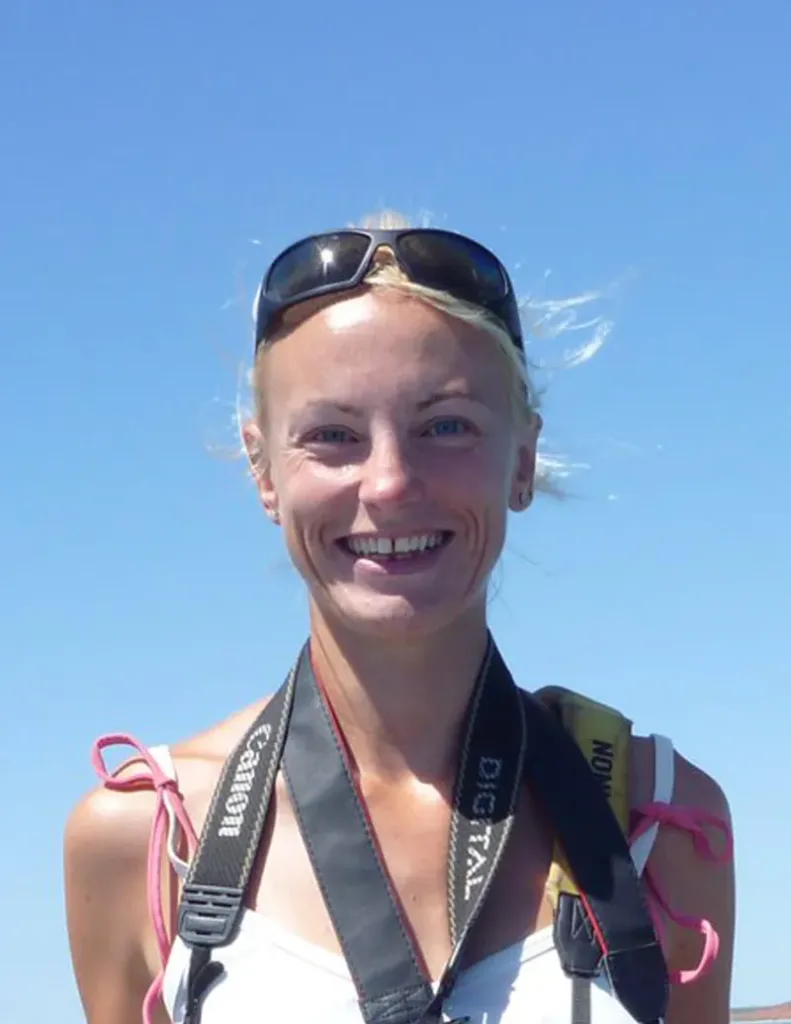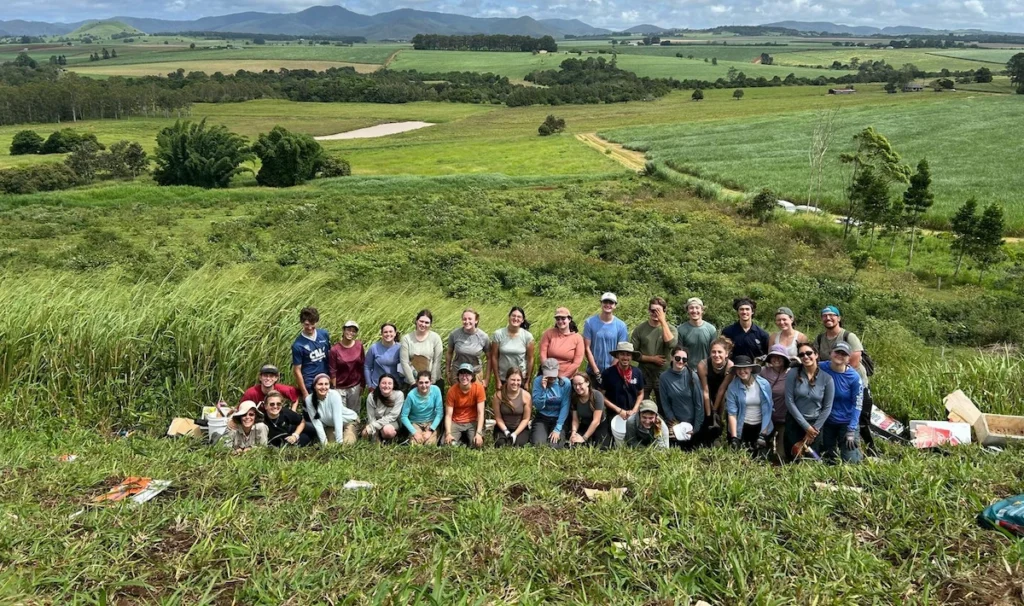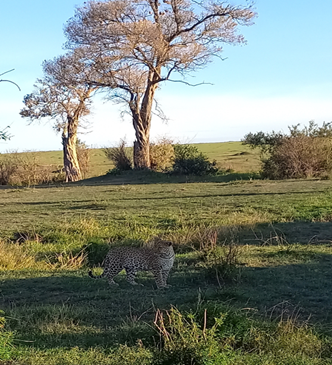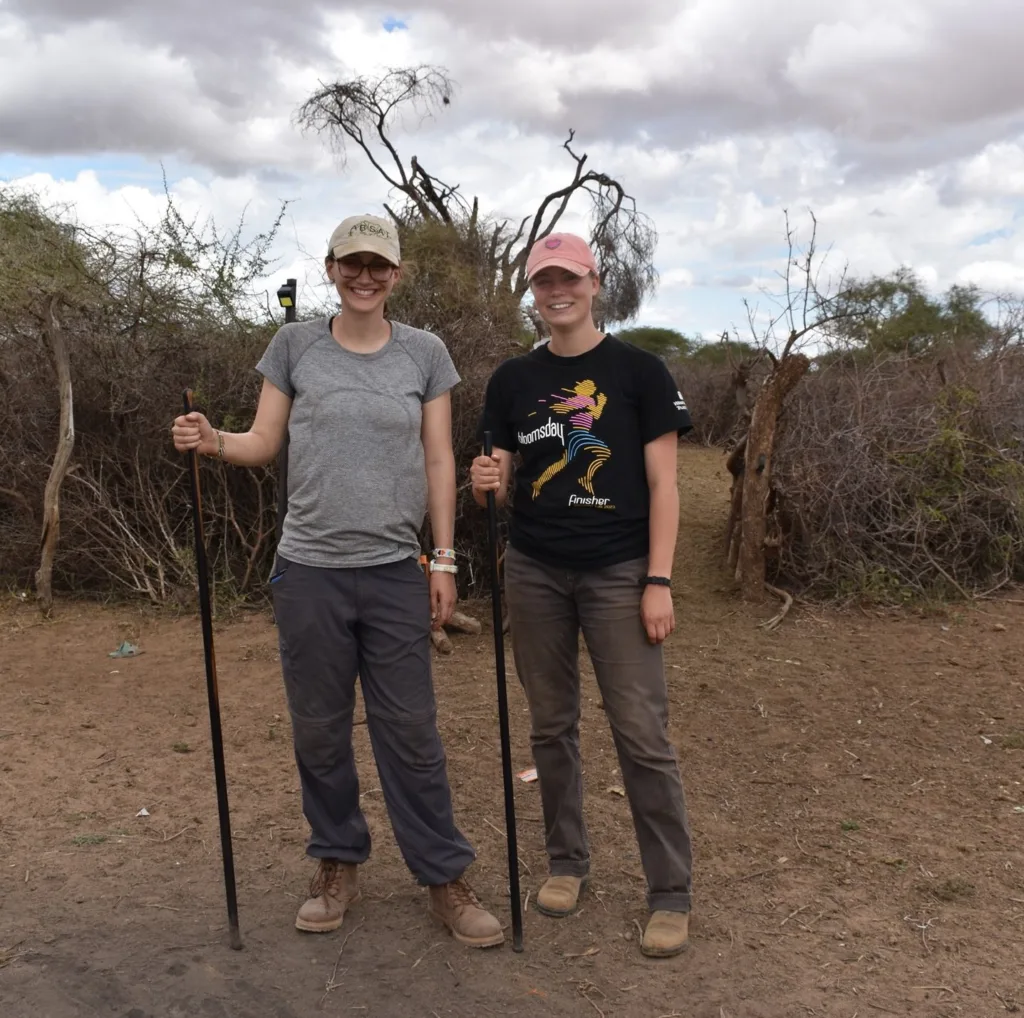
By: Ewa Krzyszczyk, PhD
A Deeper Curiosity
This week, we have no field trip for the first time since the semester started. But walking around on campus you get the impression that students are on a different type of journey. There is a constant buzz of activity and conversations about research ideas, ecological concepts, organic farming and different aspects of sustainability. In the field, you see groups with strange devices made of plastic tubes, or humming bird feeders, or students lying on the ground, apparently observing something tiny in the dry vegetation.
What’s happening? During the past few years, we have increasingly integrated hands-on projects and education into the Center’s efforts to operate more sustainably on all levels. This makes perfect sense, because students represent a huge and constant source of knowledge, curiosity and creativity to tap into. But how? Very simple. Give them a problem to solve within the context of our mission, but clearly leave enough independence and freedom so that they can make the best use of their own passion, interests, strengths and current background.
Over the course of about three weeks, students will be working on projects for three courses simultaneously: Environmental Ethics and Development (EED), Natural Resources Management (NRM) and Tropical Ecology (TE). In an applied approach, students develop viable sustainable solutions for the Center, based on their current knowledge and their own perception of our operations for EED. The NRM course requires them to evaluate aspects of the integrated pest management in our organic orange and mango orchards, based on our extensive data bases, long-term meteorological data and their own field observations. And for TE, students come up with a robust research design to test hypotheses linked to optimal foraging, using a study organism of their choice.
The effects of this problem-based approach are surprising. Of course, it is way more challenging to develop your own projects in three different teams and in a short time-frame, instead of working through a process that has been entirely cooked up for you. But this is a good thing. Students usually develop a much higher level of ownership of their projects, I would say also a higher level of attachment to their data, and a deeper curiosity to analyze and discover patterns. This becomes evident when student questions and informal conversations during the day are focused on the intricate linkages between local food sources, food preparation and waste streams. Or on how to use black soldier flies for composting, how to promote composting in the neighbor community, and how to increase community involvement and cultural inclusion at the Center. Ideas just start to spin off each other. Students will start to discuss trophic interactions in the orchards, or how to build the best experimental device to give ants a hard time when they are feeding on a variety of baits, where to observe leaf-cutter ants working at night, or how to sample cryptic and fragile scale insects from orange trees (and what are scale insects doing all day anyway?).
And yes, managing and adjusting expectations, challenging your own previously formed ideas is a huge part of the process, too. You must learn what can be done within the time, labor and budgetary constraints of a given context or organization. You must learn that sustainability requires thinking in systems and understanding trade-offs. Solutions that help save energy may produce hazardous waste. Organic products may not always be the ideal solution for a farmer’s livelihood. A solution that works perfectly at home may be hard to implement elsewhere. Reality-check.
Take a step back. Try a different angle. Think again. Think critically, generate and play with different ideas, discuss with your team. Listen. These are skills that can contribute a lot to the sustainability mission of our Center. And to dealing with all kinds of challenges that people face in their professional or personal lives later on. In my opinion there’s hardly a better way to unleash students’ motivation, energy and creativity than a project that balances solid guidance from faculty and the necessary independence which allows them to contribute their own best ideas.
Related Posts

Cinder Cone Chronicles: Lessons from Drought, Data, and Determination

